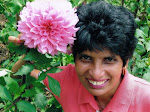I enjoyed working with amazing people in Chile. It has been a wonderful experience. I am delighted that the toolkit we developed has reached different countries and many more people.
CCL was invited by Vertical to facilitate a Creative Leadership Conversation (CLC) program for 23 staff, consultants and coaches. Vertical is a multi-faceted entity that is part expedition company, part training and development organization, and part foundation for the social good. Vertical believes that these agendas as interlinked. In its work, Vertical guides people on journeys that generate new insights and learning and trace paths to greater social contribution.
For the program, Vertical wanted to convene its staff and partners so they could get to know each-other better and forge a shared vision for the organization moving forward. The CLC model uses conversation as a means for co-creation. Beginning with an exploration of identity and values, the process flows towards envisioning new futures. Participants learn and use the core coaching skills of listening, inquiry, and feedback along with a set of tools that can be used to anchor conversation. It helps to deepen the awareness of oneself, creates deeper bond among participants and provides knowledge, practices and tools.
The 2.5 day program was facilitated by Philomena Rego, Janet Carlson, and Lyndon Rego and delivered – thanks to simultaneous translation – in Spanish. We started the program by setting intentions for our time together. We used memento activity to introduce ourselves to each-other. This brought forth much emotion as people spoke of family connections and loss from the Chilean earthquake and tsunami. This kind of open sharing, we learned, is not so common as there is a wariness about being open. There is a Chilean expression known as chaquetero that means pulling another person down by their coat tails. It is manifest in a tendency to be critical. The CLC program was a process that took the participants in the other direction. It is about appreciation, support and abundance. It is about dreaming about possibilities and exploring how to bring them to life.
By the end of the program we heard that experience was powerful. Participants said it helped them to reconnect with themselves and each other. They had a greater appreciation for what it was to be a part of an organization like Vertical that values people. They felt that together they can make a difference. They expressed how this methodology could be used more broadly in Chile, in government, in communities, and with youth.
Chile is undergoing a period of volatility as young people take to the streets in protest about the cost and quality of education. The CLC model, we heard, can give people a voice and help enable constructive social engagement. There is much need to democratize leadership in Chile, a country that is affluent but with pervasive social inequity. With Vertical we are exploring a number of ways to carry this agenda forward in Chile.
CCL was invited by Vertical to facilitate a Creative Leadership Conversation (CLC) program for 23 staff, consultants and coaches. Vertical is a multi-faceted entity that is part expedition company, part training and development organization, and part foundation for the social good. Vertical believes that these agendas as interlinked. In its work, Vertical guides people on journeys that generate new insights and learning and trace paths to greater social contribution.
For the program, Vertical wanted to convene its staff and partners so they could get to know each-other better and forge a shared vision for the organization moving forward. The CLC model uses conversation as a means for co-creation. Beginning with an exploration of identity and values, the process flows towards envisioning new futures. Participants learn and use the core coaching skills of listening, inquiry, and feedback along with a set of tools that can be used to anchor conversation. It helps to deepen the awareness of oneself, creates deeper bond among participants and provides knowledge, practices and tools.
The 2.5 day program was facilitated by Philomena Rego, Janet Carlson, and Lyndon Rego and delivered – thanks to simultaneous translation – in Spanish. We started the program by setting intentions for our time together. We used memento activity to introduce ourselves to each-other. This brought forth much emotion as people spoke of family connections and loss from the Chilean earthquake and tsunami. This kind of open sharing, we learned, is not so common as there is a wariness about being open. There is a Chilean expression known as chaquetero that means pulling another person down by their coat tails. It is manifest in a tendency to be critical. The CLC program was a process that took the participants in the other direction. It is about appreciation, support and abundance. It is about dreaming about possibilities and exploring how to bring them to life.
By the end of the program we heard that experience was powerful. Participants said it helped them to reconnect with themselves and each other. They had a greater appreciation for what it was to be a part of an organization like Vertical that values people. They felt that together they can make a difference. They expressed how this methodology could be used more broadly in Chile, in government, in communities, and with youth.
Chile is undergoing a period of volatility as young people take to the streets in protest about the cost and quality of education. The CLC model, we heard, can give people a voice and help enable constructive social engagement. There is much need to democratize leadership in Chile, a country that is affluent but with pervasive social inequity. With Vertical we are exploring a number of ways to carry this agenda forward in Chile.


